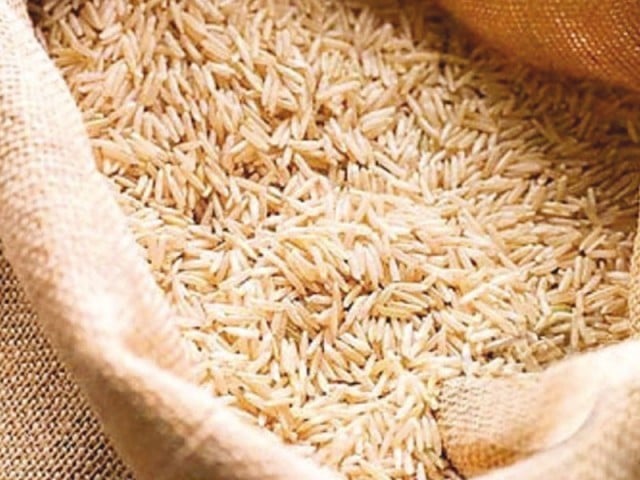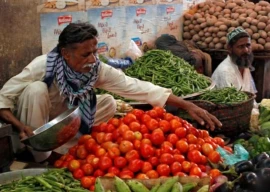
Okara stands amongst the best and unique rice cultivation areas in Asia. Paddy crop is widely cultivated in all the three tehsils of the district.
This year too, paddy crop has been planted on an area of more than 386,000 acres, from which production of 388,996 tonnes is expected.
The paddy crop is sown from May to June and is fully ready in five to six months. Okara Agriculture Technical Officer Ghulam Mustafa told The Express Tribune that Okara’s sela rice is deemed to be the best in the world, which is very much liked and exported to a number of countries, including Afghanistan, Iran, United Arab Emirates and South Africa. The district agriculture department officials check the paddy crops and give them guidelines. Rotavator machinery and medicines are provided to the farmers. According to Ghalla Mandi association president Chaudhry Fayyaz Zafar and land owners Chaudhry Habibul Haq and Azhar Sheikh, the process of paddy harvesting is completed in several stages.
They said a large number of women take part in the sowing alongside men. The sowing of paddy is completed manually. The crop requires a lot of water. Canal water is used to irrigate the crop continuously. However, rainwater is also very beneficial for the crop. When the crop is ready, the rice is boiled in large boilers. After this, the rice is scattered on the ground for drying. After two to three days, it is collected and taken to shellers, where broken rice is separated from the long grains and husk by the machines.
Pakistan gets big share in rice markets
The last step is to polish the rice. There are hundreds of shellers and factories in the three tehsils of Okara where the rice is attractively packed after polishing. After the rice is ready, the country's major exporters take it to big cities, including Karachi, Peshawar and Quetta, from where they are exported to different countries around the world.
There are several types of Okara’s rice but the best one is the sela or parboiled variety, which is liked all over the world and its price is higher. Big traders and stockists from across the country come to the Okara market to buy the rice.
“However, farmers are worried due to insufficient government support for paddy crop,” said Fayyaz. “Expensive medicines, fertilisers, electricity, diesel, and lack of uninterrupted supply of water have also increased the difficulties of farmers,” he added.
The businessman highlighted that the benefits of government subsidies reached a limited number of farmers.
He maintained that the recent lockdown has also affected rice exports due to the closure of borders. Fayyaz claimed that a large number of exporters were smuggling rice to different countries.
He continued that if the government provides direct or indirect support to the people involved in all the stages of rice production, the export would increase.
Published in The Express Tribune, July 13th, 2020.

















COMMENTS
Comments are moderated and generally will be posted if they are on-topic and not abusive.
For more information, please see our Comments FAQ